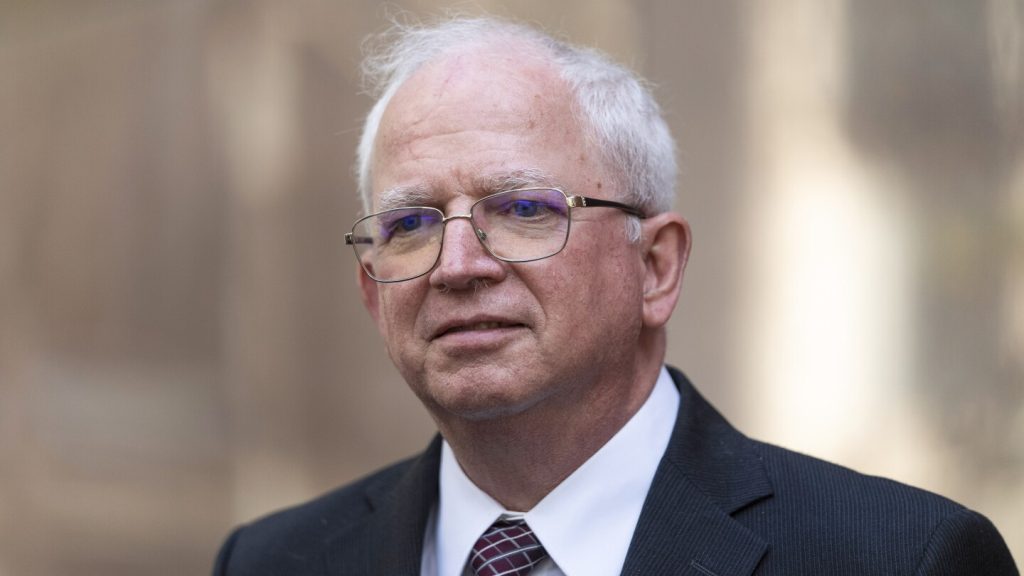A judge has recommended that conservative attorney John Eastman lose his California law license over his efforts to keep former President Donald Trump in power after the 2020 election. Eastman faced 11 disciplinary charges in the state bar court for his role in developing a legal strategy to have Vice President Mike Pence interfere with the certification of Biden’s victory. The recommendation now goes to the California Supreme Court for a final ruling on whether he should be disbarred. Eastman can appeal the decision if the top court rules against him. Eastman’s attorney maintains that his actions were based on reliable legal precedent and constitutional research.
The judge found Eastman liable for 10 of the 11 charges, including misleading courts and plotting with Trump to hinder the transfer of power. Roland’s decision states that Eastman conspired with Trump to obstruct a lawful government function. Eastman is also facing criminal charges in Georgia for allegedly conspiring to overturn the election results in the state. He has pleaded not guilty and defended his actions as part of his role as Trump’s attorney. The State Bar of California has accused Eastman of violating ethical standards by making false and misleading statements to undermine the will of the American people.
In response to the charges, Eastman’s attorney argued that his client was engaged in zealous advocacy on behalf of Trump and did not intend to steal the election. However, the judge rejected this defense, stating that Eastman’s actions were a departure from professional norms and amounted to lies that cannot be justified as zealous advocacy. Eastman will be placed on involuntary inactive status within three days of the judge’s order, which means he cannot practice law in California while the Supreme Court considers his case. The judge’s decision was welcomed by the States United Democracy Center, which filed an ethics complaint against Eastman.
Eastman has been a member of the California Bar since 1997 and has had an extensive legal career, including serving as a law clerk for Supreme Court Justice Clarence Thomas. He was also a dean at Chapman University law school and a founding director of the Center for Constitutional Jurisprudence. Despite his legal background, Eastman’s actions surrounding the 2020 election have raised ethical concerns and led to disciplinary action against him. The judge’s recommendation for disbarment sends a message that even high-profile attorneys and their clients are not above the law.
The case against Eastman underscores the ongoing legal fallout from the events of the 2020 election and the attempts to overturn the results. While Eastman has maintained his innocence and defended his actions as part of his legal duties, the judge’s decision highlights the serious consequences for attorneys who engage in misconduct. The recommendation for disbarment will now be considered by the California Supreme Court, which will have the final say on whether Eastman should lose his law license. The outcome of this case will likely have wider implications for legal professionals involved in similar election-related controversies in the future.


